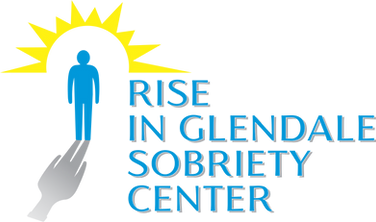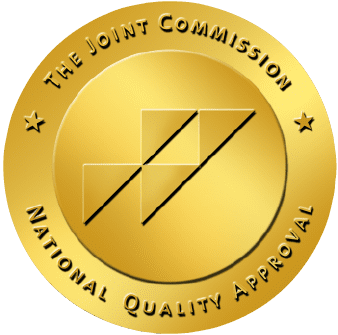12-Step Program
In Los Angeles
At Rise Sobriety Center, we understand that addiction recovery is not a one-size-fits-all journey. Different individuals have different needs, and we offer a wide range of treatments to ensure everyone gets the best help for their substance use disorder. One of our cornerstone treatments is Twelve-Step Facilitation Therapy (TSF), which incorporates the time-tested principles of the 12-step program.
If you’re seeking a 12-step rehab program in Los Angeles as part of your addiction treatment, our facility offers a comprehensive approach that combines these proven methods with the latest in addiction science to support your path to continuous sobriety.
What is
Twelve-Step Facilitation Therapy?
Twelve-Step Facilitation Therapy is a structured, therapeutic intervention designed to help individuals engage with the 12-step recovery program. This approach is grounded in the philosophy of mutual support, accountability, and self-examination, which have helped millions of people around the world recover from addiction.
According to a 2020 Cochrane review, Twelve-Step Facilitation (TSF) programs consistently outperform other treatments like Cognitive Behavioral Therapy when it comes to increasing abstinence rates
Understanding the Core Principles of the 12-Step Program
The 12-step program revolves around a set of guiding principles that encourage individuals to take responsibility for their actions, seek spiritual growth, and foster connections with others in similar situations. These steps aim to help individuals face their addiction head-on, accept the need for change, and embrace a structured path to recovery. The first step often involves admitting powerlessness over addiction, which opens the door to accepting help and building a supportive community.
Each of the twelve steps builds upon the last, creating a roadmap for individuals to follow as they work through the various stages of their addiction recovery. This 12-step model emphasizes the importance of taking personal accountability, making amends where necessary, and providing service to others—fostering both individual and community healing
The Spiritual Aspect of the Twelve Steps
While the 12-step process is often described as spiritual in nature, it is important to understand that it is not inherently religious. The idea of a “higher power” is central to the 12 steps, but this concept is intentionally left open to interpretation. Individuals are encouraged to define their higher power in a way that is meaningful to them, which may or may not involve traditional religious beliefs.
For many, this spiritual aspect provides a sense of comfort and direction during a difficult time. By surrendering to something greater than themselves, individuals can let go of the illusion of control that addiction fosters and open themselves up to the possibility of real change and sustainable recovery.
The Role of Peer Support in Recovery
Peer support is one of the key elements that makes the 12-step program so effective. Addiction can be an isolating experience, and having a supportive community of people who understand what you’re going through is invaluable. In TSF, participants are encouraged to attend 12-step meetings and step meetings where they can share their experiences, receive encouragement, and hold each other accountable. This sense of community can help combat the loneliness and shame that often accompany addiction, providing a secure environment where recovery can flourish.
12-step support groups also serve as a source of inspiration. Seeing others who are further along in their recovery journey can provide hope and motivation for individuals who may be struggling to envision a life of sobriety without addiction. In this way, the group dynamic becomes a powerful tool for long-term sobriety.

The Importance of Twelve-Step Facilitation Therapy
in Addiction Treatment
Addiction is a multifaceted condition that affects individuals physically, mentally, and emotionally. For some, the structure and support provided by the 12-step method are essential components of lasting recovery. Twelve-Step Facilitation Therapy offers a tried-and-true approach that integrates well with other forms of addiction treatment, providing a holistic path to recovery that addresses the complexities of addiction.

How It Complements Other Therapies
At Rise Sobriety Center, we believe in treating the whole person, not just the addiction. This is why Twelve-Step Facilitation Therapy is often used in combination with other evidence-based therapies such as Cognitive Behavioral Therapy (CBT), Motivational Interviewing (MI), and Medication-Assisted Treatment (MAT). By incorporating a variety of therapeutic approaches, we ensure that our clients receive comprehensive care that addresses the physical, psychological, and emotional aspects of addiction.
While some therapies focus on managing cravings or addressing underlying mental health conditions, Twelve-Step Facilitation Therapy focuses on helping individuals create a support system and develop the tools they need for long-term success. This integration of therapeutic approaches allows clients to make meaningful progress in all areas of their recovery.
Research confirms that no single treatment approach has shown conclusive superiority, making the integration of 12-step programs with other modalities particularly valuable. Studies recognize 12-step programs as ‘a respectable modality to recommend to those seeking help with addiction,’ though they may not be the ideal fit for everyone.

The Benefits of Structured Support in Recovery
One of the primary benefits of the 12-step model is the structured guidance it provides. Addiction can lead to feelings of chaos and uncertainty, and having a clear, step-by-step process can bring a sense of stability and control back into a person’s life. The Twelve-Step Facilitation Therapy structure is designed to keep individuals focused on their recovery goals, with actionable steps that they can take at every stage of the healing process.
This structured support also fosters accountability, which is crucial for maintaining sobriety. Participants are encouraged to take responsibility for their actions and behaviors, make amends when necessary, and take ownership of their recovery journey. This sense of accountability is reinforced through regular 12-step groups and peer support, providing a powerful framework for success.

The Process of Twelve-Step Facilitation Therapy
At Rise Sobriety Center
At Rise Sobriety Center, we understand that every individual’s path to recovery is unique. That’s why our Twelve-Step Facilitation Therapy is tailored to meet each client’s specific needs and circumstances through personalized care.
Assessment and Personalized Plans
The first step in our Twelve-Step Facilitation Therapy process is a comprehensive assessment. During this assessment, our qualified staff gather detailed information about the client’s history with substance abuse, their mental and physical health, and their personal recovery goals. This assessment allows us to create a customized treatment plan that incorporates the 12-step program in a way that is meaningful and effective for the individual.
Each client’s plan is regularly reviewed and adjusted as they progress through their recovery journey. This ensures that they are always receiving the support and guidance they need from our experienced team, no matter where they are in the process.
Introduction to the Twelve Steps
Once the personalized treatment plan is established, clients are introduced to the 12-step program. This introduction is done in a supportive and non-judgmental way, allowing clients to explore the steps at their own pace. Our experienced clinical staff guide clients through each step, explaining its significance and how it relates to their recovery journey.
Some clients may be hesitant or unsure about certain steps, especially those that involve spiritual or personal growth. We understand that this process can be challenging, which is why our therapists provide ongoing support and encouragement as clients work through the steps.
Individual and Group Therapy Sessions
At Rise Sobriety Center, we offer a combination of individual and group therapy sessions as part of our Twelve-Step Facilitation Therapy. In individual sessions, clients work one-on-one with their therapist to address personal challenges, explore their thoughts and feelings, and set goals for their recovery. These sessions provide a safe and confidential space for clients to dig deep into the root causes of their addiction, including complex trauma.
Group therapy sessions, on the other hand, offer clients the opportunity to connect with others who are going through similar experiences. These sessions are an integral part of the 12-step program, as they foster peer support and accountability within our clinical client base. In these groups, clients share their progress, challenges, and successes, providing mutual encouragement and learning from one another’s experiences.

Why Choose Twelve-Step Facilitation Therapy
at Rise Sobriety Center?
When it comes to addiction treatment, choosing the right rehab center is crucial. Here’s why Rise Sobriety Center stands out as the best option for Twelve-Step Facilitation Therapy in Los Angeles.
Our Comprehensive Approach to Recovery
At Rise Sobriety Center, we offer a holistic approach to addiction treatment that goes beyond just addressing the symptoms of alcohol abuse or drug addiction. We focus on healing the whole person—body, mind, and spirit. Our Twelve-Step Facilitation Therapy is integrated with a range of other effective treatment options to provide a complete substance abuse treatment plan that addresses all aspects of addiction and recovery.
We also recognize that addiction often coexists with mental health issues, and we provide dual diagnosis treatment center services to ensure that all underlying conditions are properly addressed. This comprehensive approach increases the likelihood of long-term sobriety and reduces the risk of relapse
Experienced Therapists Guiding Your Journey
Our clinical staff and counselors have extensive experience in addiction treatment programs and the 12-step method. They are passionate about helping individuals overcome their addiction and guiding them through the recovery process. With their expert guidance, you’ll be equipped with the tools and support you need to successfully complete the Twelve-Step Facilitation Therapy and maintain your sobriety.
Our therapists are not only knowledgeable but also compassionate. They understand the struggles that come with alcohol addiction treatment programs and provide a non-judgmental and empathetic environment where you can feel safe and supported.
Peer Support and Accountability
At Rise Sobriety Center, we believe that no one should have to face addiction alone. That’s why we place a strong emphasis on peer support and accountability. Our Twelve-Step Facilitation Therapy includes group therapy sessions where clients can connect with others who are on the same journey. These 12-step support groups provide a sense of community, helping individuals feel less isolated and more empowered in their recovery.
In addition to group therapy, we encourage clients to find a sponsor within the 12-step program—a mentor who has completed the steps and can offer guidance, support, and accountability. This sponsorship system is one of the most powerful elements of the 12-step program, as it creates a lasting supportive community for individuals as they navigate their recovery journey.
Long-Term Recovery and Aftercare Support
At Rise Sobriety Center, we believe that recovery doesn’t end when you leave our residential treatment program. That’s why we offer ongoing aftercare support to help individuals maintain their sobriety long after they’ve completed the Twelve-Step Facilitation Therapy. This includes continued access to intensive outpatient services, alumni events, and one-on-one check-ins with therapists.
We also encourage clients to stay connected with their 12-step program by attending 12-Step Meetings and continuing to work with their sponsor. Long-term sobriety requires ongoing effort, and we’re here to provide the resources and support you need for a lifetime free from addiction.
Start Your Healing Journey
at Rise Sobriety Center
Whether you’re new to the 12-step program or looking to strengthen your recovery with additional support, Twelve-Step Facilitation Therapy at Rise Sobriety Center could be the solution you’ve been searching for. With experienced clinical teams, a supportive community, and a commitment to long-term success, we offer a path to sobriety that is both sustainable and empowering. If you or a loved one is ready to begin the journey to recovery from addiction, we’re here to help every step of the way. Get in touch today.
Your Journey to Living a Life Free of Addiction, Starts Here!
Frequently Asked
Questions
The duration of Twelve-Step Facilitation Therapy depends on the individual and their unique needs. For some, the program may take several months to complete, while others may take longer. The goal is to ensure that each individual has a strong foundation for recovery before moving on.
Yes, the 12-step program has been proven effective for a wide range of addictions, including alcohol, drugs, and even behavioral addictions like gambling. Its principles can be adapted to fit the needs of individuals facing different types of addiction.
The cost of Twelve-Step Facilitation Therapy varies depending on the individual’s treatment plan and the length of their stay. We work with most major insurance providers to help make treatment accessible and affordable. For more information on pricing, please contact our admissions team.
Twelve-Step Facilitation Therapy (TSF) is unique because it combines a structured, step-by-step approach with peer support and spiritual reflection. Unlike other therapies that may focus on individual sessions or medication alone, TSF emphasizes personal responsibility, community involvement, and a long-term commitment to recovery through its proven 12-step framework.
Yes, many individuals who come to Rise Sobriety Center have tried other methods in the past. The 12-step program offers a fresh perspective and new tools for recovery. Even if other treatments haven’t worked for you, Twelve-Step Facilitation Therapy may provide the structure and support you’ve been missing.

